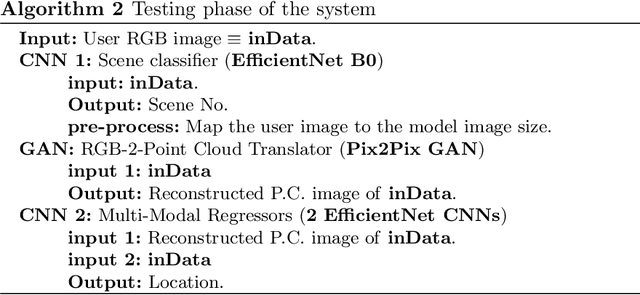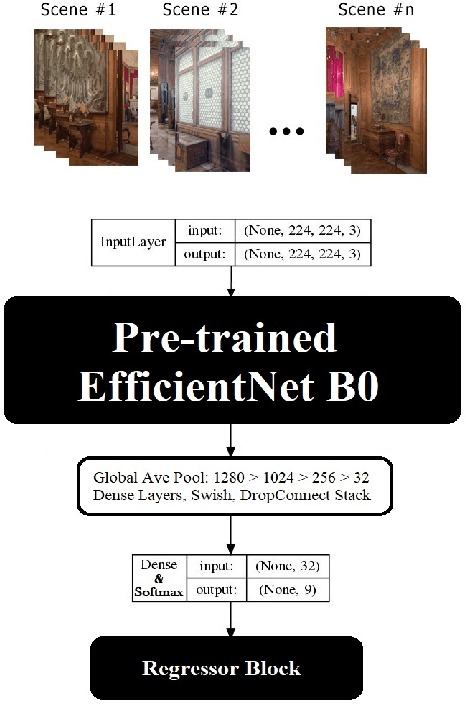APS: A Large-Scale Multi-Modal Indoor Camera Positioning System
Paper and Code
Feb 08, 2021



Navigation inside a closed area with no GPS-signal accessibility is a highly challenging task. In order to tackle this problem, recently the imaging-based methods have grabbed the attention of many researchers. These methods either extract the features (e.g. using SIFT, or SOSNet) and map the descriptive ones to the camera position and rotation information, or deploy an end-to-end system that directly estimates this information out of RGB images, similar to PoseNet. While the former methods suffer from heavy computational burden during the test process, the latter suffers from lack of accuracy and robustness against environmental changes and object movements. However, end-to-end systems are quite fast during the test and inference and are pretty qualified for real-world applications, even though their training phase could be longer than the former ones. In this paper, a novel multi-modal end-to-end system for large-scale indoor positioning has been proposed, namely APS (Alpha Positioning System), which integrates a Pix2Pix GAN network to reconstruct the point cloud pair of the input query image, with a deep CNN network in order to robustly estimate the position and rotation information of the camera. For this integration, the existing datasets have the shortcoming of paired RGB/point cloud images for indoor environments. Therefore, we created a new dataset to handle this situation. By implementing the proposed APS system, we could achieve a highly accurate camera positioning with a precision level of less than a centimeter.
 Add to Chrome
Add to Chrome Add to Firefox
Add to Firefox Add to Edge
Add to Edge